Maryann Gray is a social psychologist and educator. She is also what she calls a CADI (Causing Accidental Death or Injury). In 1977, when she was 22 years old, an eight-year-old boy darted out in front of her car and was killed. Maryann runs a website, accidentalimpacts.org, as a resource for other CADI’s.
Ellary Allis: Thank you so much for agreeing to speak with SevenPonds, Maryann. Would you give a brief summary of what happened when you were 22 and had this accident?
Maryann Gray: Yes. Before I launch into it, I just want to clarify that although I maintain a website and offer information about the experience of accidentally killing someone, I’m not a clinical psychologist or therapist. I’m a social psychologist and trained to do research, but I’m not a clinician.
That said, here’s the story. Forty-two years ago, when I was 22 years old, I was a graduate student living in Oxford, Ohio, which is a little college town. I was a graduate student at the time, and on a beautiful June day, I was driving on a rural highway outside of town. An 8-year-old boy named Brian darted out in front of my car. I couldn’t avoid hitting him, and he died before he reached the hospital. I was devastated.
Ellary: Can you give some background on how you think it’s impacted your journey in life?
Maryann: I always make a point of saying that I’m well aware that I’m not the victim in this situation. The victim was an 8-year-old boy named Brian and his family. Having said that, I was utterly devastated and traumatized. I had all of the symptoms of acute post-traumatic stress disorder, which was not even in the Diagnostic and Statistical Manual of Mental Disorders of the American Psychiatric Association at the time. So I didn’t really have any guidance or help for what I was going through.
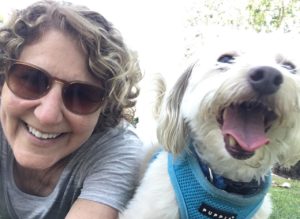 I was afraid to drive; I didn’t drive for about two years. The most long-lasting impact of the accident was that I never had children. I was just too scared and I didn’t trust myself to raise a child. I felt very guilty and scared and ashamed and traumatized. For many years I would have flashbacks and intrusive images. I was scared that people would hate me if they knew what I’d done, and I was scared that I would do it again. I didn’t trust myself and I didn’t trust the world. This kid came out of nowhere and it made me feel that the world was a dangerous place. I became a timid person.
I was afraid to drive; I didn’t drive for about two years. The most long-lasting impact of the accident was that I never had children. I was just too scared and I didn’t trust myself to raise a child. I felt very guilty and scared and ashamed and traumatized. For many years I would have flashbacks and intrusive images. I was scared that people would hate me if they knew what I’d done, and I was scared that I would do it again. I didn’t trust myself and I didn’t trust the world. This kid came out of nowhere and it made me feel that the world was a dangerous place. I became a timid person.
Ellary: What happened immediately after the accident and in the following years?
Maryann: I was not arrested, nor did I face any civil lawsuits. The police said it would be classified as what’s called a classic dart-out. They did a few hours of investigation at the accident scene, and then asked if I could drive myself home. I was like, “No, I can’t drive myself home.” My father came out to Ohio from his home in New York the next day, and he handled all of the logistics for me, which was tremendously helpful. He handled the car and the insurance and got me a lawyer in case I needed one. But I had nobody to help me handle the emotional impact of this. The advice I got from my parents and friends and professors and even the therapist I went to was, “This is a tragic situation. It’s horrible and upsetting, but it wasn’t your fault.” Everyone was saying it wasn’t my fault and I should move on with my life.
So I tried to move on with my life, and all these symptoms and thoughts went underground. Two years after the accident, I moved to California from Ohio to continue my graduate work. And at that point, I stopped talking about the accident. But I thought about it all the time. So there was this big gap between what was going on internally and how I was presenting myself externally. And it was very lonely. You can’t have deep, authentic relationships if you’re keeping a secret like that. I just sort of felt like, “What right do I have to ask for sympathy? I did this and so it’s my burden to bear alone.” And I treated it like that.
Things looked OK from the outside. I finished my Ph.D.; I got married; I had friends. Things looked OK, but they weren’t OK.
Ellary: When did you start talking about the accident?
Maryann: In 2003 there was a terrible accident here in Santa Monica at the Farmer’s Market. An old man drove through a crowd at the Farmer’s Market and left 10 people dead. It was a story that hit close to home. People were understandably furious and anguished, but they were calling this old man a murderer. And that really upset me because I didn’t see it that way. It was evident to me that he’d made a terrible mistake and had lost control, but the idea that he’d intended to kill people just seemed like such a cruel interpretation of a tragedy. So I felt moved to write this little commentary and I sent it off the NPR.
They ran it on “All Things Considered.” And all of a sudden, friends of mine who had known me for years and didn’t know about the accident were driving home from work and hearing me tell my story. It was a big deal, and I was braced for lots of judgment and criticism. But there was just an outpouring of support. It was such a relief to finally say, “This is who I am and this is what I’ve done.” A huge amount of energy got freed up.
So then people started contacting me who had also accidentally killed someone and also didn’t have anyone to talk to. That snowballed and eventually, I created the website accidentalimpacts.org. Now I speak to the media pretty regularly. I’m actually giving a TEDx talk next week at UCLA.
It’s still true that there’s a remarkable lack of resources for people that have accidentally killed someone. And it’s really not that uncommon, unfortunately. I estimate that about 20,000 people in the United States alone accidentally kill someone each year. So there are a lot of people struggling with the grief and pain and trauma of having gone through this. But there isn’t any protocol, there aren’t any support groups, there are no research articles except for what I do. Maybe the idea that any of us could do this is so scary that people don’t want to talk about it. But I’ve become an advocate, saying these are good people who had terrible luck or made a terrible mistake, and they need support.
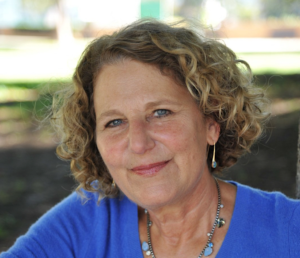
Maryann Gray
Credit: losangeleswalks.org
Ellary Allis: Have you thought about writing a book or anything?
Maryann Gray: I actually have a book outlined. I’m not sure if I’ll sell it to a publisher or just sell it through my website eventually. I also give lectures to various audiences. In two weeks I’m going to talk to the mayor’s crisis response team, who go out to the scene of accidents to provide emotional support, and I do try to do as much media as I can. So I do try and get the word out about causing accidental death or injury as much as I can.
Ellary: Have you connected with any individuals in particular through your website? I imagine you get a lot of emails.
Maryann: I do. The website allows people to contact me privately, and comment to the site. Over the years I’ve heard from hundreds of people who have caused accidental death or injury, mostly in car crashes but also in gun accidents and healthcare-related mistakes, and freak accidents around the house — all kinds of situations.
Ellary: What are some of the ways that you’ve addressed your own PTSD?
Maryann: By the time I was seriously engaging in therapy, most of my PTSD symptoms had resolved over time. When I really needed help, there wasn’t really help available. But over the years, I’ve had a lot of talk therapy, going through the accident and what it means, working through the narrative I’d told myself about it and talking about how I want to respond to it. Creating the website about causing accidental death or injury was a huge part of my own healing.
I think ultimately all we can do is honor the victim, the person we’ve killed, through choices about how we live our own lives. What else can we do? So I encourage people who contact me to think about how they want to do that. Do they want to do service or advocacy? Do they want to do something creative, like poetry or music? Do they want to deepen their own spirituality? Improve their education? Do they want to commit themselves to deepening their empathy or character in whatever way that’s meaningful to them? I encourage them to do that as a way of honoring their victim and giving back to their community. I think that’s essential to healing.
People also need help managing the symptoms of PTSD, for sure, and there’s a lot of treatment options available out there these days. I also think the issue of accountability, responsibility and morality is something that has to be wrestled with. It’s really important to understand what we can’t control, what we can control, what it means to be responsible. I was not culpable for Brian’s death, but I was responsible — I was the active agent in his death. For many years I figured that made me a terrible person. Then slowly, I became able to say “I can choose the person I want to be. It doesn’t help to make me another victim and live a smaller life as a result of the accident.” So I had to figure out how I can live my life in a way that honors Brian and his family. For me, it was reaching out to help other people in a similar situation.
Ellary: You contacted Brian’s brother in recent years. What provoked you to contact him and what was that experience like?
Maryann: I had thought many times about reaching out to his family, and for various reasons had not done so. A little over 10 years ago, I just had this urge that it was time to reach out. I wrote a letter to Brian’s mother, telling her I think about Brian every day — which I do — and that he lives in my heart as I know he lives in her heart too. It turned out that she had recently passed away, but the letter was forwarded to Brian’s older brother. He called me and we talked for a long time and it turned out to be a very healing conversation. I don’t feel comfortable talking for him, but I think we both found a measure of acceptance.
Also, we are the people that still grieve for this child, and will always grieve for this child. In a funny way, that’s a bond. I’ve talked to him a few times after that conversation, mostly connected to media that I’ve done, and he’s unbelievably generous and kind. I’m very appreciative. He’s a pretty remarkable guy.
People ask me all the time about contacting their victim’s family. Lawyers will advise people who have caused accidental death or injury to refrain from contacting the victim or the victim’s family because anything you say can be used against you. But many people in positions like mine really want to reach out and show caring and concern. I tell them that the victim and the victim’s family don’t owe the perpetrator anything. If they want to hate the perpetrator, that’s their right. They’ve got to go through their healing process. So I tell people, “If you’re asking for something, if you want the family to exonerate you or offer some sort of redemption, don’t contact them.”
I don’t think we should be asking our victims to forgive us. That’s something they can choose to give or not. If the perpetrator is able to reach out from the heart with a heartfelt message of compassion without needing anything in return, however, then that can be very powerful.
Ellary: Do you have anything else you’d like to say before we finish up?
Maryann: In general, my message is about compassion. Good people can make terrible mistakes. We don’t have to excuse them. I believe in holding people accountable, but I don’t think we have to ostracize them or hate them or decide they’re terrible people. We can relate to them with kindness and compassion. Causing accidental death or injury creates a lot of trauma for perpetrators as well. These are people who are really suffering.
Ellary: And what is your message for people who may have accidentally killed someone?
Maryann: I always refer people to psychotherapy. I think therapy is extremely important. Beyond that, I would say that this does not have to define you. You can choose what this will mean in your life, and you can find a level of peace with yourself and a sense of belonging. It may feel impossible at the moment when you’re suffering, but it is possible.
Ellary: Thank you so much for sharing all of this and talking about it the way that you have. I’m sure there are so many people who are so appreciative of it. Thank you for talking to SevenPonds!

 How Do you Move Forward After Causing Accidental Death Or Injury?
How Do you Move Forward After Causing Accidental Death Or Injury?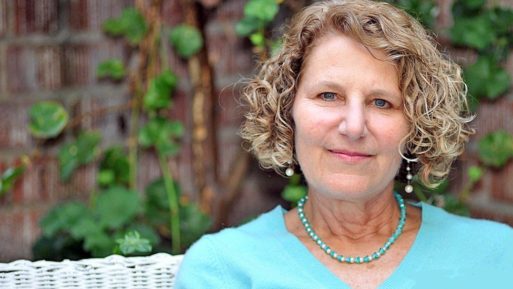
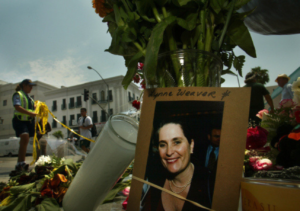
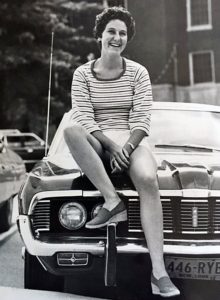
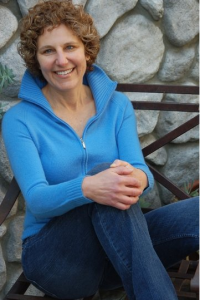



 “Help Me, Helen”
“Help Me, Helen”
 Recovering Cremation Remains After the Los Angeles Fires
Recovering Cremation Remains After the Los Angeles Fires
 “As Tears Go By” by Marianne Faithfull
“As Tears Go By” by Marianne Faithfull














